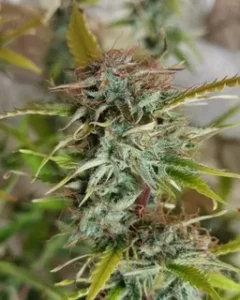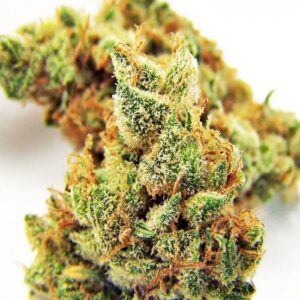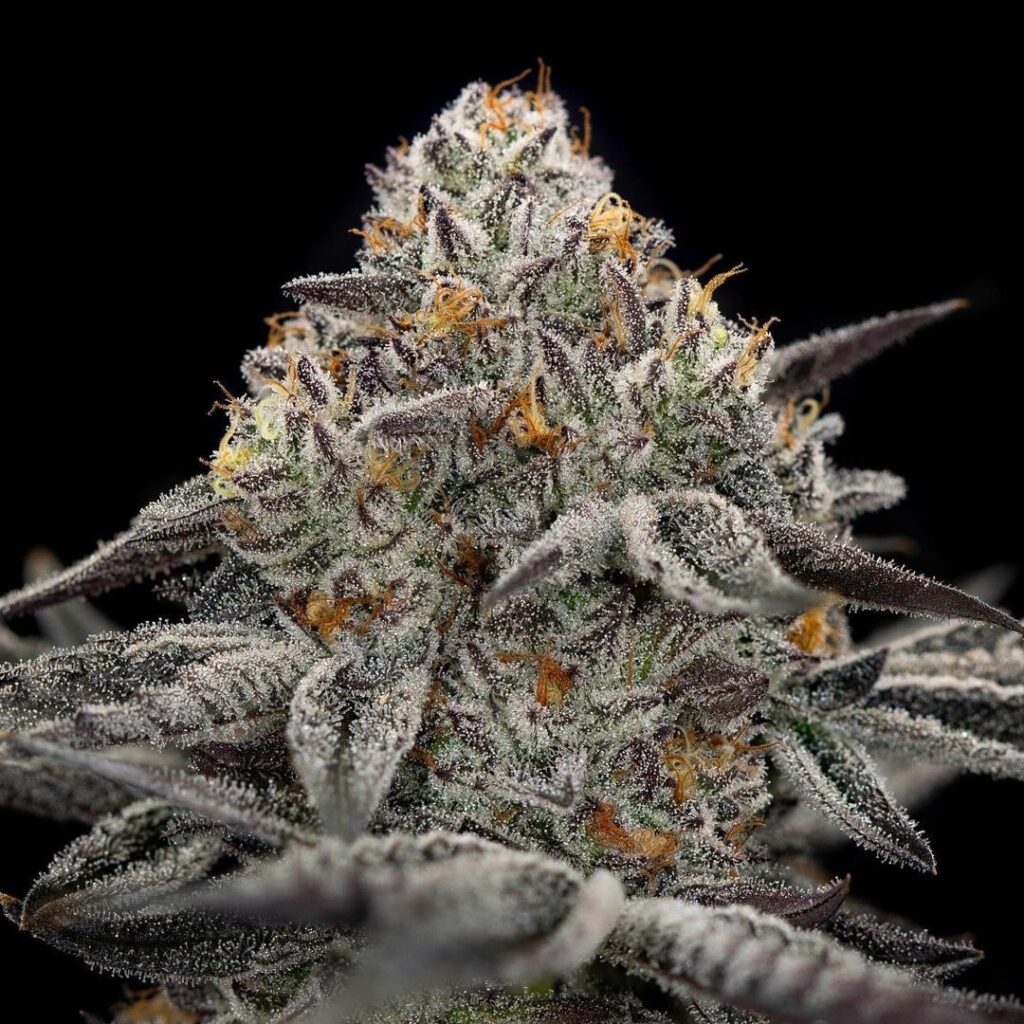In the realm of microbiology lies a microscopic marvel known as the RS11 strain. While its name may seem cryptic to the uninitiated, within its genetic makeup lies a world of possibilities waiting to be explored. The RS11 strain stands as a testament to nature’s ingenuity, boasting unique characteristics that have captured the fascination of scientists and researchers worldwide.
As we embark on a journey to unravel the mysteries of the RS11 strain, we peel back the layers of its genetic code to uncover its hidden potential. From its humble origins to its remarkable adaptations, the RS11 strain serves as a testament to the resilience and adaptability of microbial life forms.
In this introductory exploration, we will delve into the origins, characteristics, and significance of the RS11 strain, shedding light on its role in shaping the natural world and potential applications in various fields of science and industry. Join us as we embark on a voyage of discovery, unraveling the strain’s enigma and uncovering the secrets hidden within its microscopic realm.
Introduction to RS11 Strain: Unveiling Its Potential
In the realm of microbiology, the RS11 strain stands as a compelling subject of exploration, offering a multitude of benefits and applications across various domains. As we delve into the intricacies of this strain, we uncover not just its genetic makeup but also its profound impact on health, agriculture, the environment, and industry.
Understanding the RS11 strain is more than just a scientific pursuit; it is a gateway to unlocking a myriad of possibilities that can revolutionize our approach to healthcare, sustainable farming practices, environmental conservation, and industrial processes.
This blog post aims to provide a comprehensive guide to the RS11 strain, shedding light on its significance and diverse applications. From its origins to its current uses and future potentials, we will embark on a journey to uncover the multifaceted nature of RS11 and its role in shaping our world. Through this exploration, we will gain insights into its health benefits, agricultural applications, environmental impact, industrial uses, challenges, and future directions. Prepare to be intrigued and enlightened as we unravel the mysteries and potentials of the RS11 strain.
Understanding the RS11 Strain
The RS11 strain is a fascinating entity within the realm of microbiology, characterized by its unique genetic composition and versatile properties. Delving into its intricacies unveils a world of scientific intrigue and potential applications across various fields.
At its core, understanding the RS-11 strain involves deciphering its genetic makeup, exploring its origins, and unraveling its physiological characteristics. This strain, often studied for its distinct traits and behaviors, serves as a subject of interest for researchers seeking to harness its capabilities for diverse purposes.
From its role in enhancing soil health and promoting crop growth in agriculture to its potential applications in medical treatments and industrial processes, the RS-11 strain presents a wealth of opportunities for innovation and advancement. Through thorough examination and analysis, scientists aim to unlock this strain’s full potential, leveraging its unique properties to address pressing challenges and propel scientific progress forward.
In this exploration of the RS11 strain, we aim to shed light on its intricacies, applications, and implications, providing insights into its significance and relevance within the scientific community. Join us as we delve into the world of RS11, unraveling its mysteries and uncovering its potential to shape the future of various fields.

RS11 Strain Seeds: Exploring Potential in Agriculture
RS11 strain seeds represent a promising avenue for agricultural innovation and sustainability. These seeds, imbued with the genetic characteristics of the RS11 strain, offer unique advantages for farmers and growers seeking to optimize crop yield, enhance soil health, and mitigate environmental impact.
Derived from extensive research and selective breeding, RS11 strain seeds possess traits that make them resilient to various environmental stressors, including drought, pests, and diseases. Additionally, these seeds exhibit traits conducive to improved nutrient absorption and utilization, leading to Exotic Flower healthier and more robust plant growth.
The utilization of RS11 strain seeds in agriculture holds immense potential for addressing key challenges facing the global food system, such as ensuring food security, mitigating the effects of climate change, and reducing reliance on chemical inputs. By harnessing the strain’s inherent capabilities, farmers can cultivate crops that thrive in diverse conditions while minimizing the need for synthetic fertilizers and pesticides.
Moreover, the adoption of RS11 strain seeds aligns with principles of sustainable agriculture, promoting soil health, biodiversity, and ecosystem resilience. Through responsible stewardship of land and resources, farmers can cultivate crops that not only meet current demand but also preserve the integrity of the environment for future generations.
As research and development efforts continue to advance, the potential applications of RS11 strain seeds in agriculture are poised to expand. These seeds offer innovative solutions to pressing challenges facing the agricultural sector. By embracing the opportunities presented by RS11 strain seeds, farmers can contribute to a more sustainable and resilient food system while maximizing productivity and profitability.

What strain is RS11?
The RS11 strain is a distinctive microbial entity renowned for its significant presence in various scientific domains. Within microbiology, the RS11 strain stands out as a subject of keen interest due to its unique genetic composition and versatile characteristics.
While the exact classification of the RS11 strain may vary depending on the context of study, it is often recognized as a bacterial or fungal strain, possessing specific genetic markers that distinguish it from other microbial species. Researchers have extensively studied the RS11 strain to elucidate its genetic makeup, physiological traits, and potential applications across different fields.
Despite its classification ambiguity, the RS11 strain’s significance lies in its ability to exhibit remarkable properties that render it valuable in diverse scientific endeavors. Whether utilized in agriculture, environmental remediation, biotechnology, or healthcare, the RS11 strain offers a wealth of opportunities for exploration and innovation.
Through ongoing research and experimentation, scientists continue to unravel the mysteries surrounding the RS11 strain, shedding light on its identity and unlocking its full potential. As our understanding of this enigmatic strain deepens, so too does our appreciation for its role in shaping the future of science and technology.
Health Benefits of the RS11 Strain
The RS11 strain, a microbial entity with intriguing genetic characteristics, has garnered attention in the realm of health and wellness due to its potential therapeutic properties. Research into the strain’s health benefits reveals a range of promising applications, offering new avenues for medical treatments and preventative healthcare strategies.
Studies have shown that the RS11 strain possesses probiotic properties, meaning it can positively influence the gut microbiota and promote digestive health. By supporting a balanced microbial ecosystem within the gut, RS11 may help alleviate symptoms of gastrointestinal disorders such as irritable bowel syndrome (IBS) and inflammatory bowel disease (IBD).
Furthermore, research suggests that the RS11 strain may have immunomodulatory effects, meaning it can regulate the immune system’s response. This could potentially benefit individuals with autoimmune conditions or those seeking to boost their immune function to ward off infections and illnesses.
Moreover, the RS11 strain has shown promise in the realm of metabolic health, with some studies indicating its ability to regulate blood sugar levels and improve insulin sensitivity. These findings hold significant implications for individuals managing conditions such as diabetes and metabolic syndrome.
In addition to its direct effects on health, the RS11 strain may also contribute to overall well-being by enhancing nutrient absorption and supporting the synthesis of essential vitamins and minerals within the body.
While further research is needed to fully understand the mechanisms underlying the health benefits of the RS11 strain, the existing evidence underscores its potential as a valuable tool in promoting human health and vitality. As scientific understanding advances, the therapeutic applications of the RS11 strain are likely to expand, offering new opportunities for personalized medicine and holistic approaches to wellness.

Agricultural Applications of the RS11 Strain
In agriculture, the RS11 strain emerges as a promising ally, offering innovative solutions to enhance crop productivity, soil fertility, and environmental sustainability. Leveraging its unique genetic makeup and beneficial traits, the strain holds immense potential for revolutionizing agricultural practices and addressing key challenges facing the global food system.
One of the primary agricultural applications of the RS 11 strain lies in its ability to promote soil health and fertility. Through mechanisms such as nitrogen fixation and phosphate solubilization, RS11 enhances nutrient availability in the soil, providing essential elements for plant growth and development. By improving soil structure and nutrient cycling, RS11 contributes to sustainable farming practices and reduces the reliance on chemical fertilizers.
Moreover, the RS11 strain exhibits traits that can mitigate the impact of abiotic stressors such as drought, salinity, and heavy metal contamination. By inoculating crops with RS11, farmers can enhance their resilience to adverse environmental conditions, ensuring consistent yields and reducing crop losses due to stress-related factors.
In addition to its soil-enhancing properties, the RS 11 strain demonstrates potential applications in disease management and pest control. Studies have shown that RS11 can induce systemic resistance in plants, activating their natural defense mechanisms against pathogens and pests. By incorporating RS11 into integrated pest management strategies, farmers can reduce the need for synthetic pesticides and minimize environmental harm.
Furthermore, the RS11 strain holds promise for improving the quality and nutritional value of agricultural products. By influencing nutrient uptake and synthesis, RS11 enhances the nutritional content of crops, resulting in healthier and more nutritious food for consumers.
As research into the RS11 strain’s agricultural applications continues to advance, its potential to transform farming practices and promote sustainable agriculture becomes increasingly evident. By harnessing the benefits of RS11, farmers can cultivate resilient crops, conserve natural resources, and contribute to a more sustainable and food-secure future.
Environmental Impact
With its unique genetic makeup and versatile properties, the RS11 strain exerts a significant influence on the environment, playing a pivotal role in fostering sustainability and ecosystem health. Through various mechanisms and applications, the RS11 strain contributes to mitigating environmental degradation, promoting biodiversity, and enhancing the resilience of natural ecosystems.
One key environmental benefit of the RS11 strain is its ability to improve soil health and fertility. By enhancing nutrient cycling, nitrogen fixation, and organic matter decomposition, rainbow sherbet 11 strain enriches soil quality, making it more conducive to plant growth and ecosystem functioning. As a result, agricultural lands inoculated with RS11 exhibit increased productivity while minimizing the need for synthetic fertilizers and mitigating nutrient runoff into water bodies.
Moreover, the RS11 strain demonstrates potential applications in bioremediation, offering a natural and sustainable solution to environmental pollution. Studies have shown that RS11 can degrade various contaminants, including hydrocarbons, heavy metals, and pesticides, through processes such as biodegradation and bioaccumulation. By harnessing RS11’s remediation capabilities, researchers and environmental practitioners can remediate contaminated sites, restore ecosystem health, and safeguard human and ecological well-being.
Furthermore, the utilization of RS11 in sustainable agriculture practices contributes to mitigating greenhouse gas emissions and combating climate change. By promoting carbon sequestration in soils and reducing the use of fossil fuel-derived inputs, RS11 helps mitigate the agricultural sector’s carbon footprint and enhance its resilience to climate variability.
Additionally, the RS11 strain plays a role in promoting biodiversity and ecosystem resilience by enhancing the vitality of plant communities and supporting the diversity of soil microorganisms. Through its interactions with plants and other soil organisms, RS11 contributes to the stability and functioning of ecosystems, ensuring their capacity to adapt to environmental disturbances and changes.
Industrial and Biotechnological Uses
The RS11 strain, renowned for its unique genetic characteristics and versatile properties, holds immense promise for a wide array of industrial and biotechnological applications. Through its remarkable capabilities, RS 11:11 strain has emerged as a valuable asset in driving innovation, enhancing efficiency, and promoting sustainability across diverse sectors.
One of the primary industrial applications of the RS11 strain lies in biofuel production. With its ability to efficiently metabolize various organic substrates, RS 11:11 strain serves as a potent candidate for bioethanol and biodiesel production, offering a renewable and eco-friendly alternative to fossil fuels. By harnessing the fermentative prowess of RS11, researchers and bioengineers can develop cost-effective and sustainable biofuel production processes, reducing reliance on finite fossil resources and mitigating greenhouse gas emissions.
Moreover, the RS11 strain demonstrates potential applications in bioremediation, offering a natural and sustainable solution to environmental pollution. Through its enzymatic activities and metabolic pathways, RS11 can degrade a wide range of contaminants, including hydrocarbons, heavy metals, and industrial pollutants. By leveraging RS11’s remediation capabilities, environmental practitioners can remediate contaminated sites, restore ecosystem health, and safeguard human and ecological well-being.
Conclusion
Throughout this blog post, we have explored the multifaceted nature of the RS11 strain, uncovering its diverse benefits and applications across various domains. From its significance in health and agriculture to its environmental impact and industrial uses, the RS11 strain has emerged as a valuable asset in driving innovation, sustainability, and scientific advancement.
Understanding the benefits and uses of the RS11 strain is paramount for several reasons. Firstly, its potential to enhance human health through probiotic properties and immunomodulatory effects offers new avenues for medical treatments and preventative healthcare strategies. In agriculture, the RS11 strain’s ability to promote soil health, enhance crop yield, and mitigate environmental impact presents opportunities for sustainable farming practices and food security.
Moreover, the RS11 strain’s environmental impact extends beyond agriculture, encompassing bioremediation, waste valorization, and climate change mitigation. By harnessing its remediation capabilities and carbon sequestration potential, RS11 contributes to environmental stewardship and resilience, safeguarding ecosystems and human well-being.
In the realm of industry and biotechnology, the RS11 strain catalyzes innovation, driving advancements in biofuel production, biopharmaceuticals, and waste management. Its versatility and metabolic capabilities offer solutions to pressing challenges in energy, healthcare, and resource utilization, paving the way for a more sustainable and efficient future.
As we conclude our exploration of the RS11 strain, it is evident that further research and exploration into this fascinating topic are essential. By deepening our understanding of the rainbow sherbet 11 strain mechanisms, applications, and potential impacts, we can unlock new opportunities for scientific discovery, technological innovation, and societal benefit. Therefore, I encourage researchers, practitioners, and enthusiasts alike to continue exploring the complexities and potentials of the RS11 strain, contributing to a more resilient, sustainable, and prosperous future.

